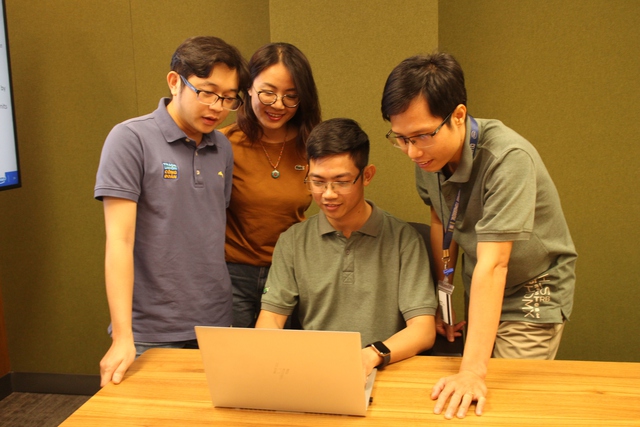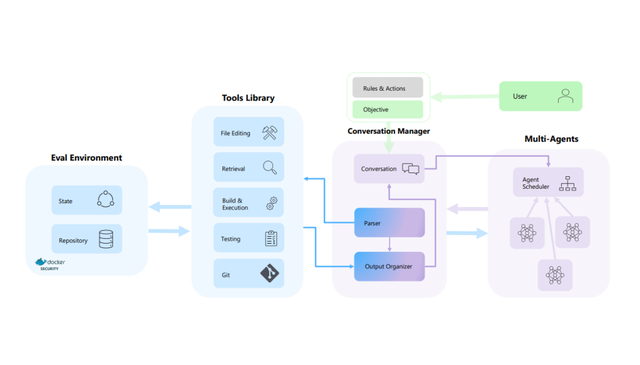
Task
Tasks are used in all programming languages, generally known as procedures or subroutines. The lines of code are enclosed in task....end task brackets.
Data is passed to the task, the processing done, and the result returned. They have to be specifically called, with data ins and outs, rather than just wired in to the general netlist. Included in the main body of code, they can be called many times, reducing code repetition.
- tasks are defined in the module in which they are used. It is possible to define a task in a separate file and use the compile directive 'include to include the task in the file which instantiates the task.
- tasks can include timing delays, like posedge, negedge, # delay and wait.
- tasks can have any number of inputs and outputs.
- The variables declared within the task are local to that task. The order of declaration within the task defines how the variables passed to the task by the caller are used.
- tasks can take, drive and source global variables, when no local variables are used. When local variables are used, basically output is assigned only at the end of task execution.
- tasks can call another task or function.
- tasks can be used for modeling both combinational and sequential logic.
- A task must be specifically called with a statement, it cannot be used within an expression as a function can.
Syntax
- A task begins with keyword task and ends with keyword endtask
- Inputs and outputs are declared after the keyword task.
- Local variables are declared after input and output declaration.
Example - Simple 1 module simple_task();
2
3 task convert;
4 input [7:0] temp_in;
5 output [7:0] temp_out;
6 begin
7 temp_out = (9/5) *( temp_in + 32)
8 end
9 endtask
10
11 endmodule
Example - Task using Global Variables
1 module task_global();
2
3 reg [7:0] temp_out;
4 reg [7:0] temp_in;
5
6 task convert;
7 begin
8 temp_out = (9/5) *( temp_in + 32);
9 end
10 endtask
11
12 endmodule
Calling a Task
Let's assume that the task in example 1 is stored in a file called mytask.v. Advantage of coding a task in a separate file, is that it can be used in multiple modules.
1 module task_calling (temp_a, temp_b, temp_c, temp_d);
2 input [7:0] temp_a, temp_c;
3 output [7:0] temp_b, temp_d;
4 reg [7:0] temp_b, temp_d;
5 `include "mytask.v"
6
7 always @ (temp_a)
8 begin
9 convert (temp_a, temp_b);
10 end
11
12 always @ (temp_c)
13 begin
14 convert (temp_c, temp_d);
15 end
16
17 endmodule
Example - CPU Write / Read Task
Below is the waveform used for writing into memory and reading from memory. We make the assumption that there is a need to use this interface from multiple agents. So we write the read/write as tasks.
1 module bus_wr_rd_task();
2
3 reg clk,rd,wr,ce;
4 reg [7:0] addr,data_wr,data_rd;
5 reg [7:0] read_data;
6
7 initial begin
8 clk = 0;
9 read_data = 0;
10 rd = 0;
11 wr = 0;
12 ce = 0;
13 addr = 0;
14 data_wr = 0;
15 data_rd = 0;
16 // Call the write and read tasks here
17 #1 cpu_write(8'h11,8'hAA);
18 #1 cpu_read(8'h11,read_data);
19 #1 cpu_write(8'h12,8'hAB);
20 #1 cpu_read(8'h12,read_data);
21 #1 cpu_write(8'h13,8'h0A);
22 #1 cpu_read(8'h13,read_data);
23 #100 $finish;
24 end
25 // Clock Generator
26 always
27 #1 clk = ~clk;
28 // CPU Read Task
29 task cpu_read;
30 input [7:0] address;
31 output [7:0] data;
32 begin
33 $display ("%g CPU Read task with address : %h", $time, address);
34 $display ("%g -> Driving CE, RD and ADDRESS on to bus", $time);
35 @ (posedge clk);
36 addr = address;
37 ce = 1;
38 rd = 1;
39 @ (negedge clk);
40 data = data_rd;
41 @ (posedge clk);
42 addr = 0;
43 ce = 0;
44 rd = 0;
45 $display ("%g CPU Read data : %h", $time, data);
46 $display ("======================");
47 end
48 endtask
49 // CU Write Task
50 task cpu_write;
51 input [7:0] address;
52 input [7:0] data;
53 begin
54 $display ("%g CPU Write task with address : %h Data : %h",
55 $time, address,data);
56 $display ("%g -> Driving CE, WR, WR data and ADDRESS on to bus",
57 $time);
58 @ (posedge clk);
59 addr = address;
60 ce = 1;
61 wr = 1;
62 data_wr = data;
63 @ (posedge clk);
64 addr = 0;
65 ce = 0;
66 wr = 0;
67 $display ("======================");
68 end
69 endtask
70
71 // Memory model for checking tasks
72 reg [7:0] mem [0:255];
73
74 always @ (addr or ce or rd or wr or data_wr)
75 if (ce) begin
76 if (wr) begin
77 mem[addr] = data_wr;
78 end
79 if (rd) begin
80 data_rd = mem[addr];
81 end
82 end
83
84 endmodule
| Simulation Output |
| 1 CPU Write task with address : 11 Data : aa 1 -> Driving CE, WR, WR data and ADDRESS on to bus ====================== 4 CPU Read task with address : 11 4 -> Driving CE, RD and ADDRESS on to bus 7 CPU Read data : aa ====================== 8 CPU Write task with address : 12 Data : ab 8 -> Driving CE, WR, WR data and ADDRESS on to bus ====================== 12 CPU Read task with address : 12 12 -> Driving CE, RD and ADDRESS on to bus 15 CPU Read data : ab ====================== 16 CPU Write task with address : 13 Data : 0a 16 -> Driving CE, WR, WR data and ADDRESS on to bus ====================== 20 CPU Read task with address : 13 20 -> Driving CE, RD and ADDRESS on to bus 23 CPU Read data : 0a ====================== |
Bạn Có Đam Mê Với Vi Mạch hay Nhúng - Bạn Muốn Trau Dồi Thêm Kĩ Năng
Mong Muốn Có Thêm Cơ Hội Trong Công Việc
Và Trở Thành Một Người Có Giá Trị Hơn
















